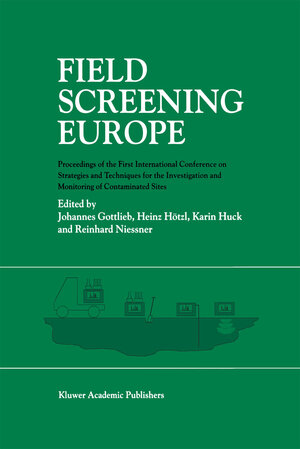
×
![Buchcover ISBN 9780792347828]()
Field Screening Europe
Proceedings of the First International Conference on Strategies and Techniques for the Investigation and Monitoring of Contaminated Sites
herausgegeben von Johannes Gottlieb, Heinz Hötzl, Karin Huck und Reinhard NiessnerThese Proceedings contain both oral and poster contributions to the first interna tional conference„ Field Screening Europe - Strategies and Techniques for On-Site Investigation and Monitoring of Contaminated Soil, Water and Air“, held in Karls ruhe September 29 - October 1, 1997. Environmental monitoring and the assessment of chemical contaminations are be coming more and more important. The integrated study of environmental con tamination in the field is a rather recent approach. „Field screening“ indicates such field analytical tools, (quick) methods and strategies for on-site or in-situ environmental analysis and assessment of contamination. The classical strategy for investigating contaminants consists of the following steps: site studies, sampling, sample transport to the laboratory, sample preparation, and analysis. This strategy is rather expensive and time consuming. Some investiga tions, including sample preparation, may last several days. In many cases, the results must be available immediately and are of importance for further decisions. Field screening is an alternative or complement to this strategy that attempts to be cheaper and faster and may achieve the same quality of results. The most important argument for field analytical methods is that the superior accuracy and high costs of laboratory methods are disproportional to the possibility of arti facts from sampling and errors originating from spatial variations of contaminants.



